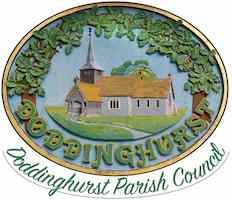Our Role
What is a Parish Council?
A Parish Council is the most local and the first tier of democratic government. The services we provide for Doddinghurst and what Brentwood Borough Council and Essex County Council are responsible is here:
Parish Councillors are elected for four years in the same way as for other councils. Bye-elections may be held to fill vacancies occurring between elections. Each year at the Annual Parish Council meeting in May the councillors choose a Chairman from amongst their number.
What powers do Parish Councils have?
Parish Councils can provide allotments, burial grounds, look after play areas and village greens. They maintain or guard such things as rights of way, bus shelters and public seats and lighting. They also have powers to provide and support village halls. They provide village newsletters and make village surveys. Some provide car parks, public conveniences, litter bins and public seats. Many appoint charitable trustees and school governors.
They have powers to improve the quality of village life by spending sums of money on things which are in the interests of the parish or its inhabitants. Doddinghurst is recognised as a Quality Parish Council with a qualified Clerk and proven attainment of standards of information and service levels to the community.
The Parish Council can do these things by providing them itself or by helping others financially to do them (such as volunteers or a charity). Parish Councils thrive on volunteers. Parish Councils are the cheapest and least bureaucratic kind of local authority. They are funded by a small part of the local council tax through precept but get no general government grant, so they have every incentive to ensure that they give and get value for money.
Doddinghurst Parish Council has worked to become eligible to adopt new powers known as the “Power of Well-Being”. On the 5th November 2009 the council formally adopted the new powers which enable it to make improvements for the benefit of the social, economic or environmental well-being of the community. This marks a significant strengthening of the Council’s powers to spend money on projects or objectives that the council regards as of benefit to the Village.
The Chairman of the Council, assisted by the Clerk, has to call a meeting for all parish electors, known as the Annual Parish Meeting every year in April or May and it must chaired by the Chairman of the Parish Council.
More about the Parish Council and the role of the Clerk.
The Chairman controls the business of a Parish Council meeting and the Council operates as a Body Corporate – no one individual has the power to decide what the Council does – the full council has to resolve by majority vote to spend money and/ or take action. Parish Council meetings are open to the public, unless closed by resolution, and will normally provide time for the public to speak.
Doddinghurst has eleven councillors who are all unpaid. Doddinghurst Parish Councillors receive no allowances (apart from the Chairman who has been voted a small allowance used for funding items outside the powers of the council).
There are three committees with delegated powers to share the work: General Purposes, Finance & Resources and Planning.
The Parish Clerk, who is the Council’s Chief Executive, prepares the meeting agenda and related paperwork, issues the summons to attend, ensures meetings are quorate, records the minutes, makes recommendations for the solution to problems and carries out the approved policies of the Council. The Clerk has to ensure Councillor needs are met for training and that they are kept informed of issues arising including changes in Council powers or codes of conduct. The Clerk is also likely to be the Contract Manager and/or Project Manager for capital projects as well as the Operational Manager for the maintenance of the Parish Council facilities. The Clerk has responsibility for supervising Council personnel and office management. If the Clerk is also the Responsible Financial Officer, he/she ensures that accounts are strictly kept and audited by internal and external auditors every year, drafts annual budgets and precept recommendations, arranges supplier payments and claims VAT refunds and undertakes governance management, including risk assessments and insurance arrangements and prepares the personnel payroll and the annual tax return.
What else is important?
Parish Councils are becoming more important because Borough Councils have become larger and more remote. Parish Councillors know the area they represent and are entitled to be consulted on planning applications, on such things as roads and footpaths and are invited to put the parish’s case at public enquiries. Within Brentwood Borough Council the Parish Councils have formed the Brentwood Borough Parish Council Association (BBPCA) to provide a forum for bottom-up feedback to the Borough Council and other service providers on local issues needing action and provided an opportunity for neighbouring parishes to discuss issues of common concern.
